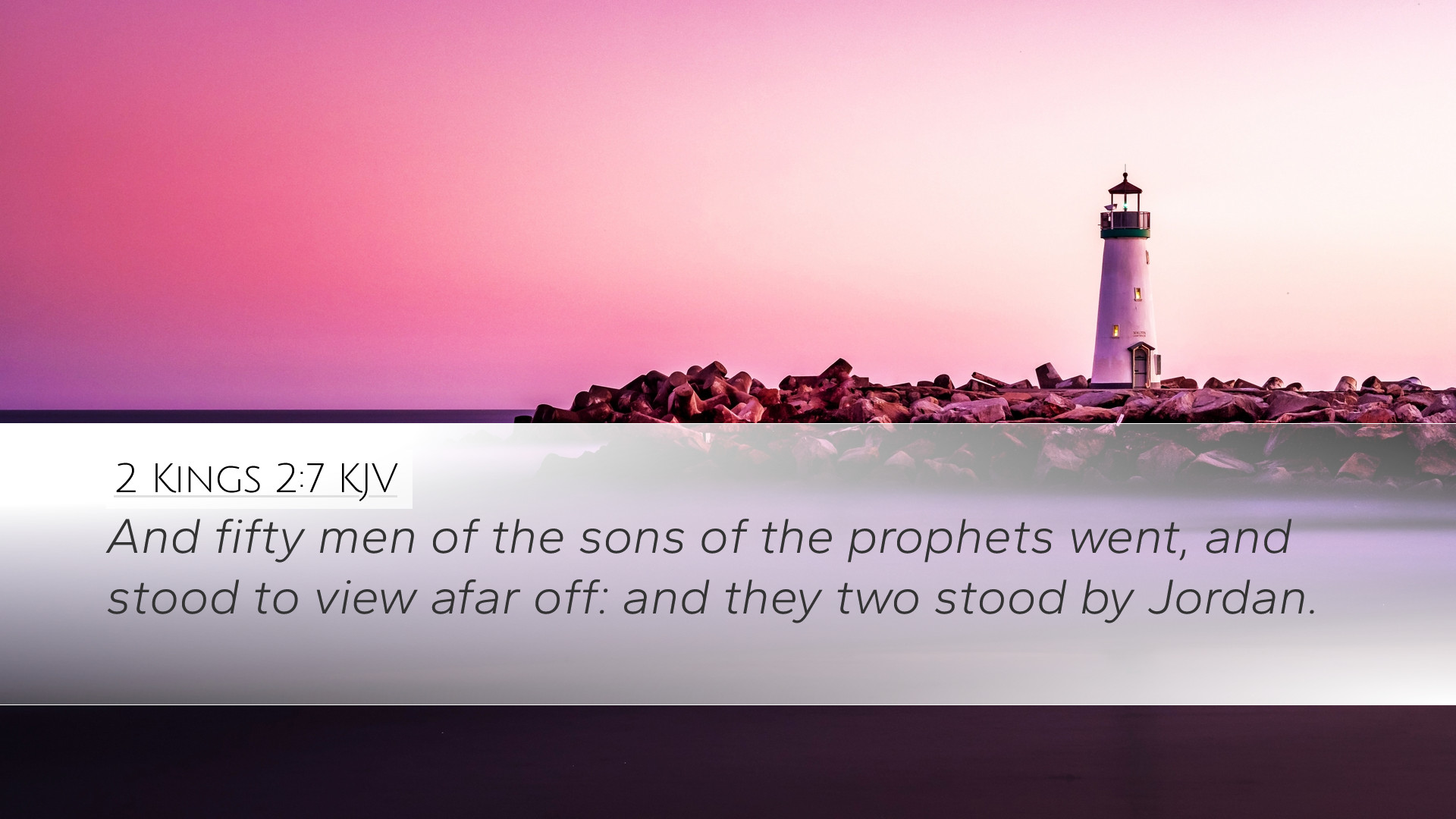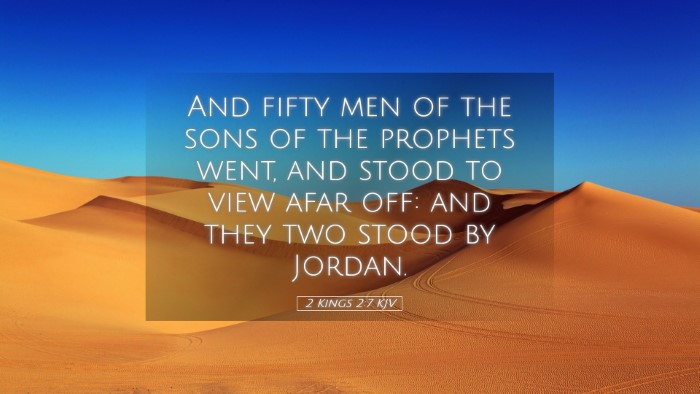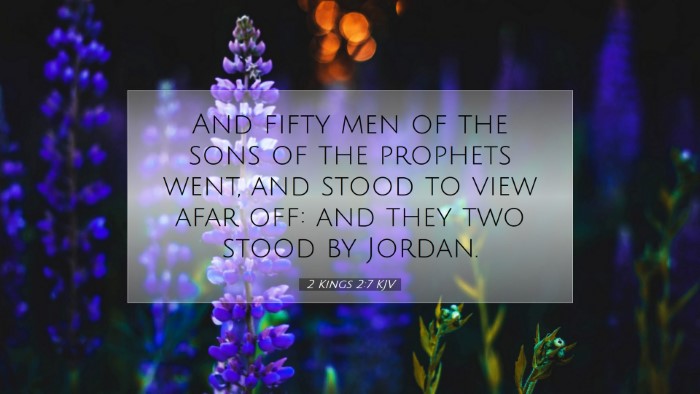Commentary on 2 Kings 2:7
Bible Verse: "And fifty men of the sons of the prophets went, and stood to view afar off: and they two stood by Jordan."
Contextual Background
In the narrative of 2 Kings 2, we witness the transition of prophetic leadership from Elijah to Elisha. This moment is pivotal, not only for the continuity of prophetic function in Israel but also for understanding the nature of prophetic succession. The verse in focus depicts the presence of fifty men from the schools of the prophets, standing at a distance, viewing the events unfolding by the Jordan River.
Insights from Matthew Henry
Matthew Henry emphasizes the significance of the company of prophets standing afar off. He notes that they represent those who, while acknowledging the prophetic office, are not yet fully engaged in the ministry themselves. This detachment may symbolize a superficial interest in the prophetic work, which can serve as a warning to contemporary believers about the danger of being mere spectators in spiritual matters rather than active participants. Henry also points out the respect held for Elijah, as even the prophets recognize the gravity of the moment.
Analysis by Albert Barnes
Albert Barnes provides a detailed exegesis of the text, highlighting the geographical and symbolic significance of the Jordan River. He suggests that the location signifies a boundary—both literal and metaphorical—between past and future leadership in Israel. The fifty sons of the prophets standing at a distance illustrate their mixed emotions regarding the departure of Elijah. They may be mourning the loss while not yet ready to embrace Elisha’s leadership. Barnes also notes the importance of community in the prophetic calling, pointing out that the presence of the prophets serves to emphasize the collective nature of faith and ministry.
Comments by Adam Clarke
Adam Clarke discusses the implications of Elijah’s imminent departure and the reactions of those around him. He points out the symbolism in these fifty prophets who, despite being close enough to witness the act, are hindered by their distance. Clarke stresses that this illustrates a common spiritual condition where believers may witness powerful acts of God from a safe distance but do not venture into deeper commitment or engagement. He warns that standing afar can lead to a lack of understanding and a missed opportunity for personal transformation and empowerment in ministry.
Theological Reflections
1. The Nature of Prophetic Succession
The presence of the sons of the prophets highlights the theme of succession in spiritual leadership. Elijah’s calling of Elisha and the subsequent viewing by the prophets serve as a reminder that leadership in the church today must also be passed on wisely. The preparation of Elisha encourages us to consider how we mentor those who will take on leadership roles within our communities.
2. The Role of the Community in Ministry
This verse illustrates the importance of community in the life of faith. The prophets represent a collective identity among those who were being trained for prophetic ministry. It prompts contemporary pastors and church leaders to foster environments that encourage communal spiritual growth and support for future leaders.
3. The Danger of Distance
The distance of the prophets from the events signals a warning against complacency in spiritual matters. Theological education and preparation can lead to spiritual stagnation if not accompanied by heartfelt engagement with the mission of God. It's essential to respond to God’s calling with urgency and commitment, rather than standing at a distance, observing from afar.
Practical Applications
-
Encourage Active Participation:
Church leaders should strive to involve members actively in the life and ministry of the church, moving them from observers to participants.
-
Mentorship Programs:
Institutions and churches should create structured mentorship programs to prepare the next generation of leaders, following the model of Elijah and Elisha.
-
Foster a Culture of Spiritual Engagement:
Encourage congregants to engage deeply with their faith, pursuing personal relationships with God and understanding their spiritual gifts.


